A lot is being asked of us right now. A lot is being asked of healthcare workers who are risking their own health and safety to contribute to the health and safety of patients. A lot is being asked of civil servants who are tasked with keeping our society functioning during a time of great uncertainty and unrest. A lot is being asked of retail employees, restaurant workers, and delivery drivers who continue to work while managing reduced incomes. A lot is being asked of teachers who must adapt to new technology and modify curriculum for online coursework. A lot is being asked of parents who continue to work, in or out of the home, while caring for children. A lot is being asked of people who have already lost jobs or been furloughed and are now dependent on a flawed and sometimes-unpredictable political process to get basic needs met.
A lot is being asked of all of us. We are asked to maintain distance from the people we are closest to, to stay informed of overwhelming information, and to trust that those in power, with whom we may disagree about fundamental values, are working effectively to combat the current crisis. It would be easy enough for all of us, while being asked to do so much for the greater good, to neglect to ask things of ourselves and for ourselves. As easy as it would be not to do so, I encourage you to ask more of yourself in the service of yourself. Here are some ideas of things you may want to ask of yourself over the coming weeks and beyond.
Ask yourself for structure. Develop a routine you can follow. Especially if you are adjusting to working from home, remember that being at work provides some structure and predictability and that we benefit from having that. If you have more time alone than you are used to, plan your time well.
Ask yourself for care. When building a structure for yourself, incorporate things that are just for you. If you already had a consistent meditation practice, now is the time to lean on it. If you did not, now is the time to consider building one. If you had a consistent exercise routine, maintain it. If you did not, consider beginning one. Attend to your diet, to your sleep, and to all the other small but crucial basics of self-care.
Ask yourself for limits on information. Pay attention to how the news and social media affects you. Some of us are helped by as much information as we can access because it allows us to plan for contingencies, so checking for updates throughout the day is useful. Some of us are helped by minimal information because too much can feel overwhelming, especially when it changes so frequently. Employ mindfulness to observe the impact information has on you and then set limits accordingly.
Ask yourself for compassion. If you struggle with the adaptations you have made to your life, remind yourself how much you are being asked to do and extend compassion to yourself. If you encounter self-judgment because you have privilege others do not and your suffering seems less than theirs, remind yourself that your own guilt does nothing to alleviate the pain of others. If you can help others more, do so. If you cannot, acknowledge that fact and let yourself off the hook.
Ask yourself for permission to check out for a while. Mindfulness is important for many reasons. An often-overlooked benefit is that strengthening our ability to remain mindful makes it less problematic when we are, briefly, mindless. Some forms of entertainment are valuable because they challenge us, inform us, or engage our thoughts and feelings in profound ways. Other forms of entertainment are valuable precisely because they do not. Sometimes we need to take a break from the world around us so we’re stronger and more rested when it’s time to come back to it.
Ask yourself for balance. If you are someone who checks the news multiple times a day, pay attention to what sort of news you’re consuming. There is a reason, in addition to the world being a hard place for many, that the news is so often upsetting. Bad news sells well. Make sure to deliberately seek out uplifting stories in addition to the troubling ones. You will have to look harder for them, but they’re there.
Ask yourself for patience. There must be a tiny group of people who, for various reasons, have not been impacted by the things we are facing right now. Most of us are not in that position. Most of us have changed the way we live in some pretty drastic ways and made decisions we have never been faced with before as we adapt to a new normal that may only last for a few days at a time before another new normal and more adaptation is required. Most of us are going to fall short at times. Be patient with and forgiving of yourself.



